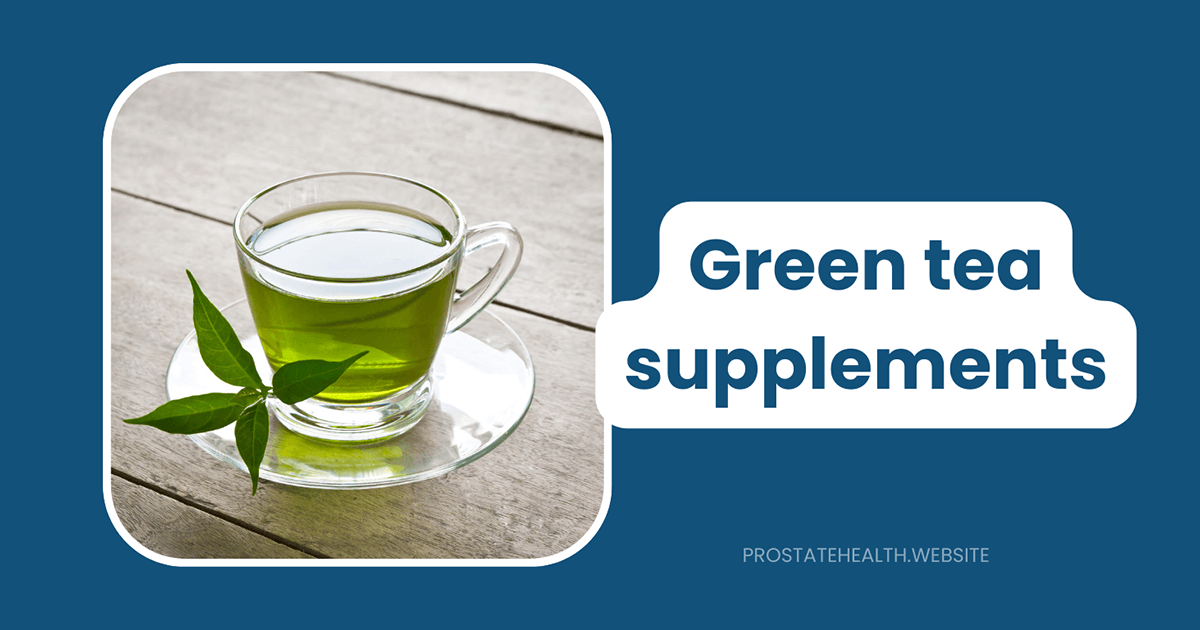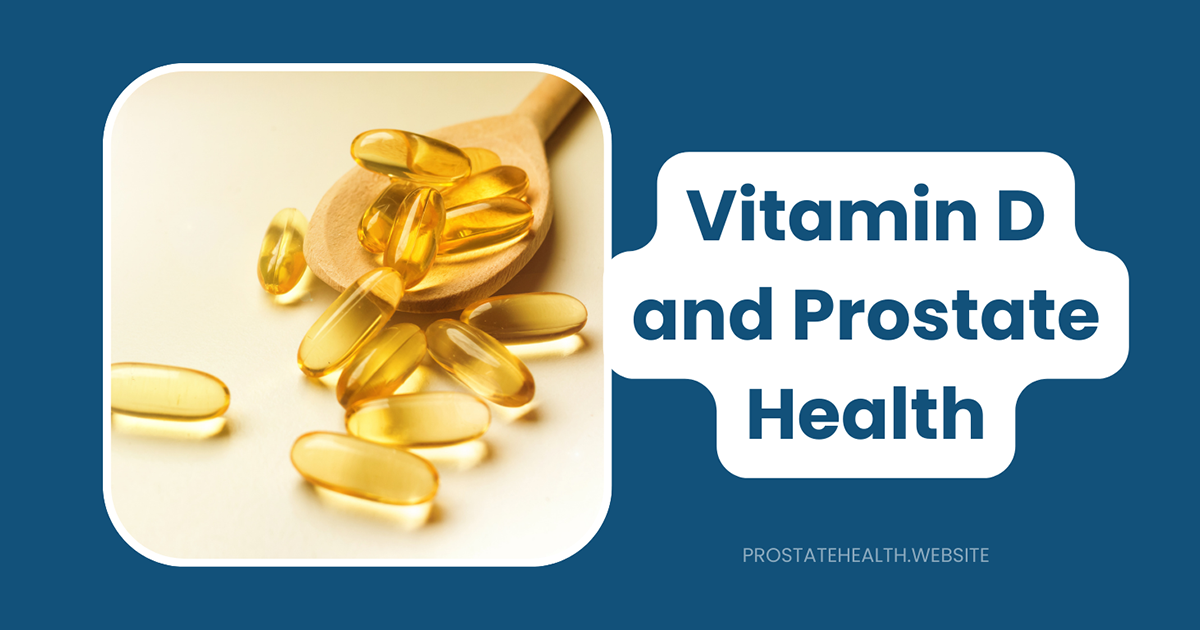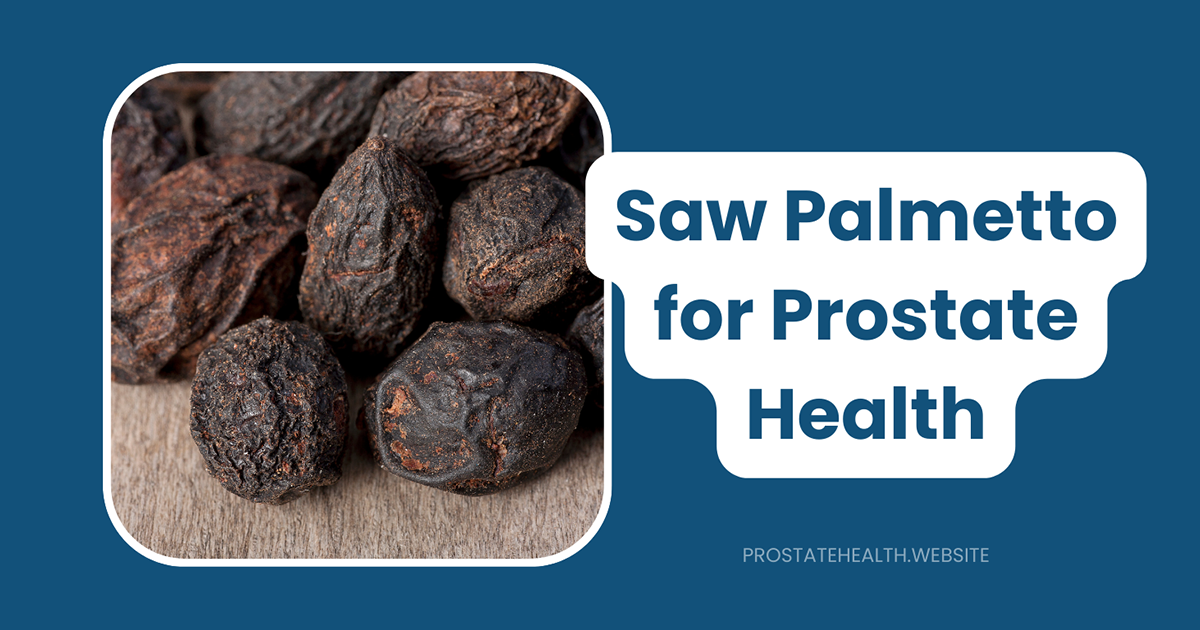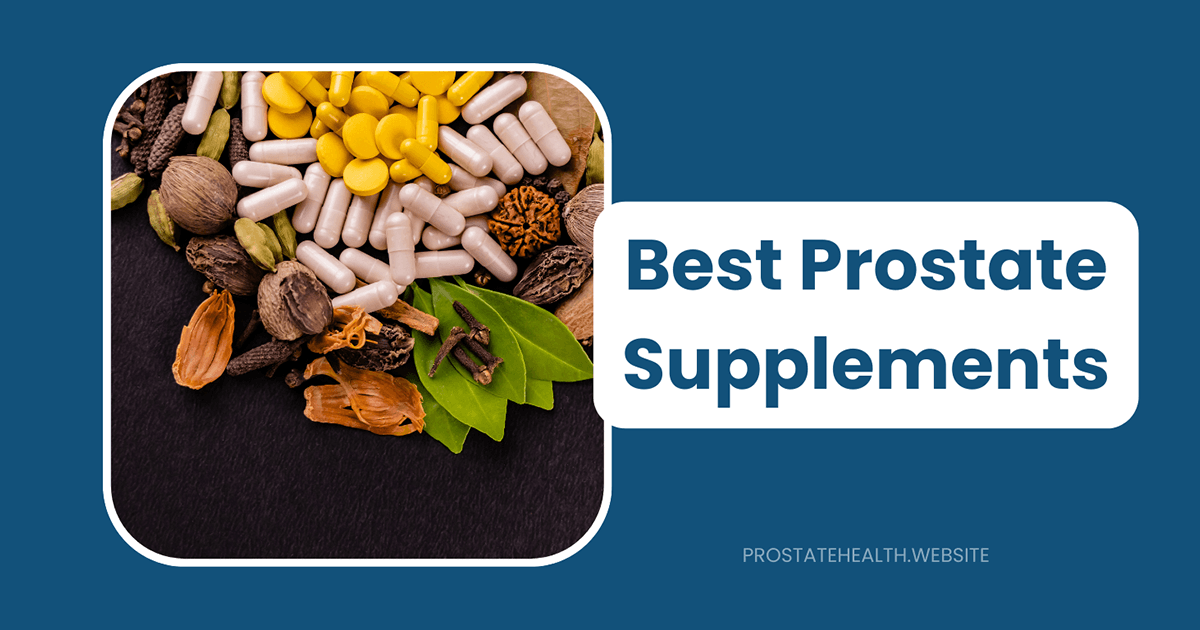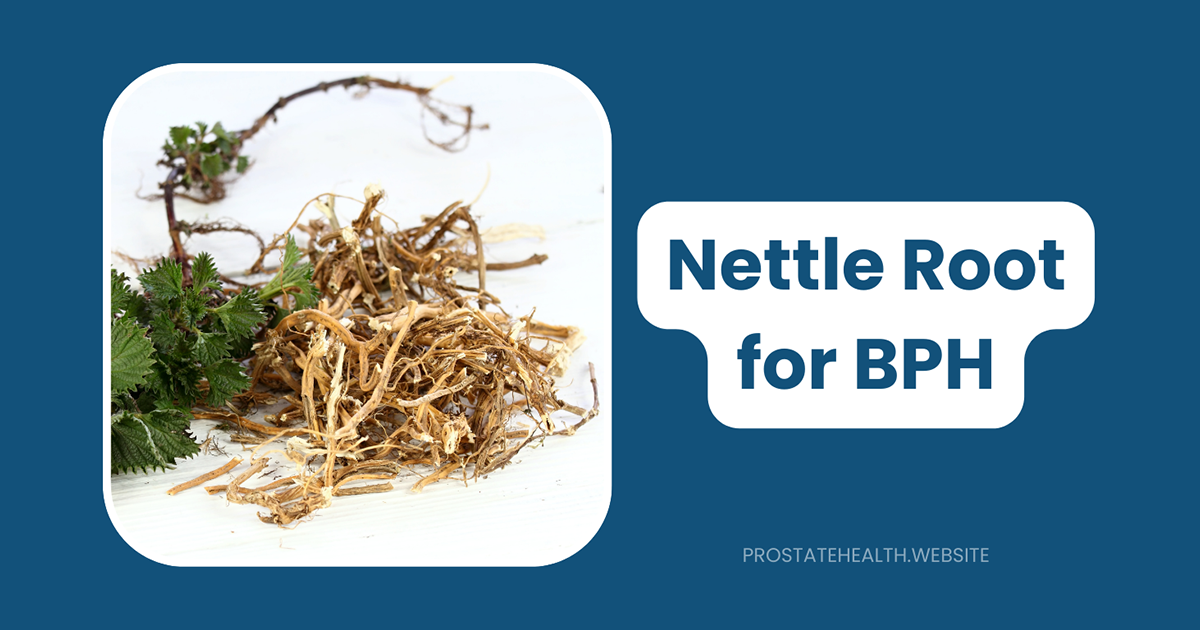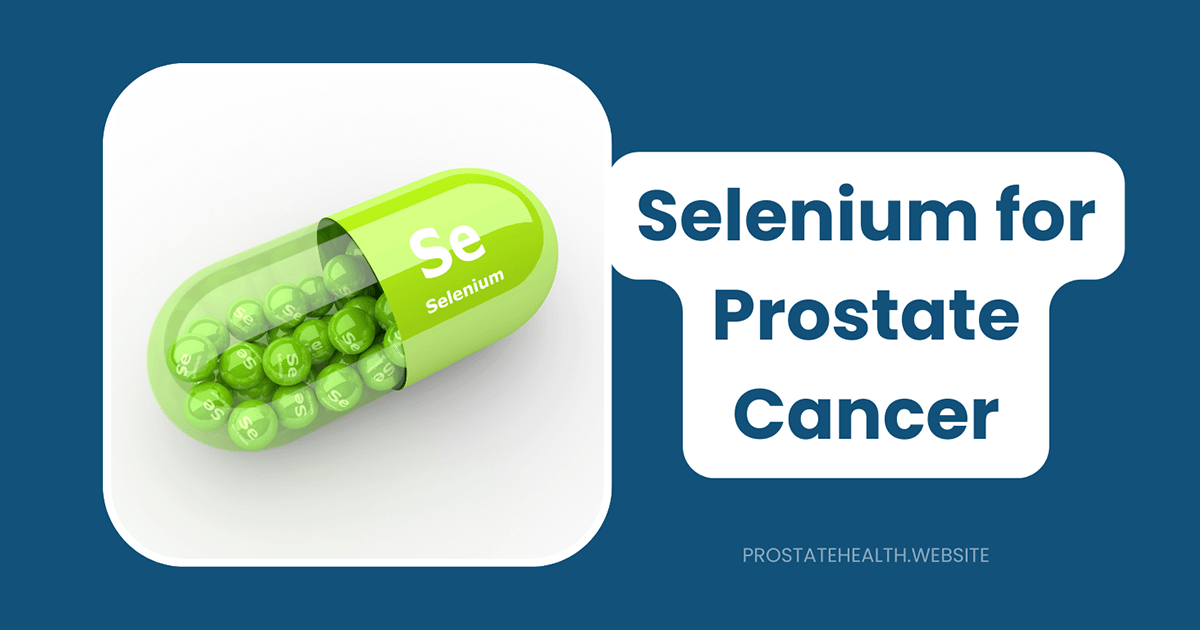Supplement Interactions with Prostate Medications: What to Watch For
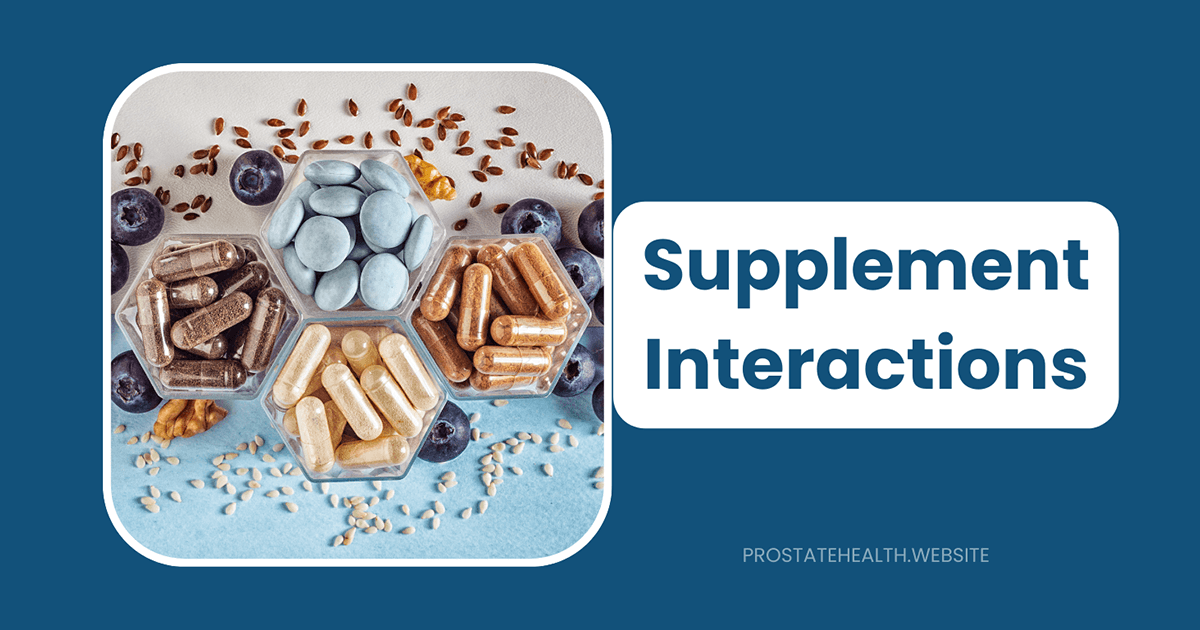
If you’re managing a prostate condition, chances are you’re taking at least one prescription medication. Whether it’s an alpha-blocker for urinary symptoms, a 5-alpha reductase inhibitor to shrink your prostate, or hormone therapy for prostate cancer, these medications are crucial tools in maintaining your health.
But what happens when you add supplements to the mix? Many men don’t realize that the vitamins, minerals, and herbal supplements they take to support their health could be interacting with their prostate medications—sometimes with serious consequences.
As someone who’s advocated for men’s prostate health for years, I’ve seen too many cases where well-intentioned supplement use led to reduced medication effectiveness or unexpected side effects. Let’s explore these interactions and learn how to navigate them safely.
Why Supplement Interactions Matter for Prostate Health
Prostate conditions affect millions of men, with benign prostatic hyperplasia (BPH) affecting about half of men by age 60 and the majority by their 80s. Prostate cancer remains the most common non-skin cancer in men, with approximately 12.8% of men diagnosed during their lifetimes.
Studies show that men with prostate conditions are more likely to use supplements than the general population:
- Over 50% of prostate cancer patients report using one or more complementary and alternative medicine (CAM) therapies
- Approximately 30% use vitamin E, saw palmetto, or lycopene supplements
- Nearly 60% of men with a family history of prostate cancer use vitamins or supplements
Yet, alarmingly, only 43% of these men discuss their supplement use with healthcare providers. This communication gap creates a dangerous blind spot in prostate care.
Common Prostate Medications and Their Functions
Before diving into interactions, let’s review the main categories of medications prescribed for prostate conditions:
For Benign Prostatic Hyperplasia (BPH):
- Alpha-blockers: Medications like tamsulosin (Flomax), alfuzosin (Uroxatral), and doxazosin (Cardura) relax the muscles in the prostate and bladder neck, making it easier to urinate.
- 5-alpha reductase inhibitors (5-ARIs): Finasteride (Proscar) and dutasteride (Avodart) shrink the prostate by blocking the conversion of testosterone to dihydrotestosterone (DHT).
- Phosphodiesterase-5 (PDE5) inhibitors: Tadalafil (Cialis) and similar medications can improve urinary symptoms while also addressing erectile dysfunction.
For Prostate Cancer:
- Androgen deprivation therapy (ADT): Includes luteinizing hormone-releasing hormone (LHRH) agonists like leuprolide (Lupron) and gonadotropin-releasing hormone (GnRH) antagonists like degarelix (Firmagon).
- Androgen receptor pathway inhibitors (ARPIs): Medications such as abiraterone (Zytiga), enzalutamide (Xtandi), apalutamide (Erleada), and darolutamide (Nubeqa).
- PARP inhibitors: Olaparib (Lynparza) and rucaparib (Rubraca) for men with certain genetic mutations.
- Chemotherapy: Docetaxel (Taxotere) and cabazitaxel (Jevtana) for advanced prostate cancer.
Each of these medications has a specific mechanism of action that can be affected by supplements in different ways.
Herbal Supplements and Prostate Medication Interactions
Saw Palmetto: The Double-Edged Sword
Saw palmetto is one of the most popular supplements for prostate health, particularly for BPH symptoms. However, it can interact with several prostate medications:
Interactions with 5-alpha reductase inhibitors (5-ARIs):
- Saw palmetto works through a similar mechanism as finasteride and dutasteride
- Combined use may increase the risk of side effects like erectile dysfunction and decreased libido
- May alter PSA levels, potentially masking prostate cancer detection
Interactions with alpha-blockers:
- Minor interactions reported with tamsulosin and other alpha-blockers
- May enhance blood pressure-lowering effects, increasing the risk of dizziness and falls
Interactions with hormone therapies:
- Theoretical interactions with estrogen-containing medications
- May reduce the effectiveness of hormone therapies for prostate cancer
“Many men don’t realize that saw palmetto acts similarly to prescription 5-ARIs like finasteride. Taking both simultaneously is like doubling up on the same mechanism, which can increase side effects without providing additional benefits.” – Dr. Aaron Katz, urologist and author of “The Definitive Guide to Prostate Cancer”
Beta-sitosterol and Other Plant Sterols
Beta-sitosterol is a plant compound found in many prostate supplements that has shown some benefit for BPH symptoms. However, it may interact with:
5-alpha reductase inhibitors:
- Like saw palmetto, beta-sitosterol inhibits 5-alpha reductase enzymes
- Combined use with finasteride or dutasteride may increase side effects
Medications processed by the liver:
- May compete for the same metabolic pathways as some prostate medications
- Could potentially alter drug levels in the bloodstream
Pygeum Africanum
This herbal extract from the African cherry tree is used for BPH symptoms and may interact with:
Alpha-blockers:
- Potential additive effects on blood pressure
- May increase the risk of orthostatic hypotension (dizziness when standing)
Anti-inflammatory medications:
- Pygeum has anti-inflammatory properties that may enhance the effects of NSAIDs
- Could potentially increase bleeding risk when combined with blood thinners
Vitamin and Mineral Supplements: Hidden Interactions
Vitamin E
Once widely recommended for prostate health, vitamin E has fallen out of favor after studies showed potential risks. It may interact with:
Blood thinners:
- High-dose vitamin E can inhibit blood clotting
- May increase bleeding risk when combined with anticoagulants often prescribed to older men with prostate conditions
Chemotherapy drugs:
- May interfere with the effectiveness of certain chemotherapy agents
- Could potentially reduce the cancer-fighting effects of treatments
The relationship between vitamin E and prostate health is complex and potentially problematic.
Vitamin D
Vitamin D is important for overall health and may have benefits for prostate health, but consider these interactions:
Calcium-based medications:
- High doses of vitamin D increase calcium absorption
- May affect the balance of calcium-regulating medications
Orgovyx (relugolix):
- No specific vitamin D interactions have been reported with this prostate cancer medication
- However, consultation with a healthcare provider is recommended before combining them
Zinc
Zinc supplements are popular for prostate health but can interact with:
Antibiotics:
- May reduce the absorption of certain antibiotics like quinolones and tetracyclines
- These antibiotics are commonly prescribed for prostate infections
Diuretics:
- Some diuretics can increase zinc excretion
- Others may decrease zinc excretion, potentially leading to toxicity with supplementation
Supplement Interactions with Specific Prostate Cancer Medications
Men with prostate cancer face particular risks from supplement interactions due to the potency of their medications and the complexity of their treatment regimens.
Androgen Receptor Pathway Inhibitors (ARPIs)
Enzalutamide (Xtandi) interactions:
- Strong CYP3A4 inducer that can affect many medications and supplements
- St. John’s Wort may decrease enzalutamide levels, reducing effectiveness
- Grapefruit and grapefruit juice may increase drug levels and side effects
Abiraterone (Zytiga) interactions:
- Strong CYP3A4 inducers like St. John’s Wort can decrease abiraterone exposure by approximately 50%
- Supplements that affect liver function may alter abiraterone metabolism
Darolutamide (Nubeqa) interactions:
- Fewer drug interactions than other ARPIs
- Still, supplements affecting BCRP transporters may alter its absorption
LHRH Agonists and GnRH Antagonists
Relugolix (Orgovyx) interactions:
- St. John’s Wort can speed up the breakdown of Orgovyx, potentially reducing its effectiveness
- P-glycoprotein inhibitors should be avoided or taken at least 6 hours apart from Orgovyx
Leuprolide and other LHRH agonists:
- Generally have fewer supplement interactions
- No significant interactions reported with common supplements
Creating a Safe Supplement Strategy
If you’re taking medications for a prostate condition and want to use supplements safely, follow these essential guidelines:
1. Full Disclosure with Your Healthcare Team
The most important step is complete transparency with your healthcare providers:
- Bring all your supplements to appointments
- Discuss your interest in supplements before starting them
- Don’t assume natural means safe
- Report any new symptoms that develop after starting supplements
2. Timing Matters
For supplements that don’t directly interact but may affect absorption:
- Take supplements at least 2 hours before or after medications
- Follow specific timing recommendations from your pharmacist
- Be consistent with your schedule
3. Know the Red Flags
Watch for these warning signs of potential interactions:
- Increased side effects from your medication
- Decreased effectiveness of your medication
- New symptoms after starting a supplement
- Changes in blood pressure or heart rate
- Unusual bruising or bleeding
4. Special Considerations for Surgery
If you’re scheduled for prostate surgery:
- Stop supplements that may increase bleeding risk at least 2 weeks before surgery (including saw palmetto, vitamin E, and fish oil)
- Inform your surgical team about all supplements you’ve been taking
- Get clear guidance on when you can safely resume supplements
Specific Recommendations by Medication Type
For Men Taking Alpha-Blockers (e.g., Tamsulosin/Flomax):
- Use caution with: Saw palmetto, pygeum, and supplements that lower blood pressure (like garlic, CoQ10, and L-arginine)
- Consider timing: Take these supplements at a different time of day from your alpha-blocker
- Monitor for: Increased dizziness, lightheadedness, or fatigue
For Men Taking 5-ARIs (Finasteride/Proscar or Dutasteride/Avodart):
- Use caution with: Saw palmetto, beta-sitosterol, and supplements that affect hormone levels
- Consider alternatives: If you’re taking a 5-ARI, you may not need saw palmetto or similar supplements
- Monitor for: Increased sexual side effects or mood changes
For Men on Hormone Therapy for Prostate Cancer:
- Use caution with: Supplements claiming to boost testosterone or alter hormone levels
- Avoid: St. John’s Wort if taking enzalutamide, abiraterone, or relugolix
- Consider consulting: An oncology pharmacist who specializes in supplement interactions
Beyond Medications: Other Substances That Interact
Alcohol
Alcohol can interact with many prostate medications:
- Increases the blood pressure-lowering effects of alpha-blockers
- May worsen side effects like dizziness and fatigue
- Can exacerbate urinary symptoms in BPH
Grapefruit Juice
This common breakfast drink can significantly affect medication levels:
- Inhibits the CYP3A4 enzyme that metabolizes many prostate medications
- Can increase blood levels of drugs like abiraterone and enzalutamide
- May lead to increased side effects
Caffeine
Found in coffee, tea, and many energy drinks, caffeine can:
- Worsen urinary frequency and urgency in BPH
- Potentially interact with certain prostate medications
- Affect sleep quality, which is already challenged by nocturia
Medications to Avoid with Prostate Conditions
Beyond supplements, certain medications can worsen prostate symptoms or interact with prostate medications:
For BPH Patients:
- Antihistamines (like diphenhydramine/Benadryl): Can cause urinary retention by preventing bladder muscle contractions
- Decongestants (like pseudoephedrine/Sudafed): Tighten muscles in the prostate and bladder neck, worsening BPH symptoms
- Tricyclic antidepressants: Can aggravate BPH symptoms and increase the risk of urinary retention
- Diuretics: Increase urinary frequency, potentially straining an already blocked urine flow
- Some muscle relaxants: May cause urinary retention and should be used with caution
For Prostate Cancer Patients:
- Medications that induce CYP3A4: Can reduce the effectiveness of many prostate cancer drugs
- QT-prolonging medications: May increase cardiac risks when combined with certain hormone therapies
- Immunosuppressive medications: Generally not recommended for concurrent use with sipuleucel-T immunotherapy
The Future of Supplement-Medication Integration
The field of integrative oncology and urology is evolving to better address supplement interactions. Promising developments include:
- Specialized software: New tools to detect clinically significant drug-supplement interactions
- Pharmacogenomic testing: Identifying genetic factors that influence how individuals respond to both medications and supplements
- Integrative protocols: Evidence-based guidelines for safely combining conventional treatments with appropriate supplements
Taking Control of Your Prostate Health
Managing prostate health often requires a multifaceted approach, and supplements may have a role to play when used appropriately. The key is informed decision-making and open communication with your healthcare team.
Remember these core principles:
- There is no one-size-fits-all approach: What works safely for one man may cause interactions for another.
- More is not better: Using multiple supplements increases the risk of interactions.
- Quality matters: Choose supplements from reputable manufacturers with third-party testing.
- Timing can reduce risk: Strategic scheduling of supplements and medications can minimize interactions.
- Regular review is essential: As your medications change, your supplement regimen may need adjustment.
By approaching supplements with the same care and consideration as your prescription medications, you can potentially enhance your prostate health while avoiding dangerous interactions.
References:

